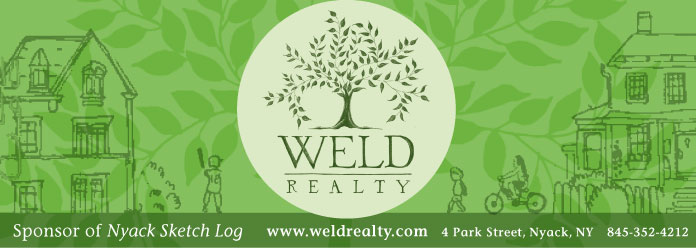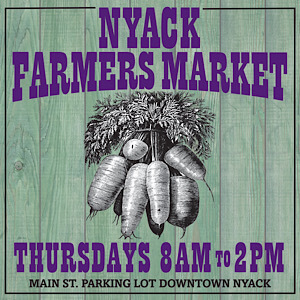The work of the Fellowship of Reconciliation has transformed this home in Upper Nyack into Martin Luther King Jr.’s dreamcatcher. This January, as we approach the 28th observance of King’s national holiday, we should also acknowledge the centennial of the founding of this global peace organization that has become a custodian of the slain civil rights leader’s philosophies and practices. Through teachings, advocacy and publications that include a special comic book that has stayed in circulation for nearly fifty years, FOR is a leading international proponent of nonviolent solutions to some of today’s most intractable conflicts.
Fellowship of Reconciliation
A brief History
Since its founding in 1914, the Fellowship of Reconciliation (FOR) has been a global emissary for peace among people and nations. The organization was founded on a handshake between two men, Henry Hodgkin, an English Quaker, and Friedrich Sigmund-Schultze, a German Lutheran, whose countries had just declared war on each other.
Hogkins and Sigmund-Schultze were attending a conference of religious leaders that had sought to prevent the spread of the conflict that would engulf the planet, the first world war. They vowed to work together for peace even though their countries were in armed conflict. Succeeding generations of FOR members have kept that pledge.
FOR-USA was founded in Garden City, NY in 1915, and then was headquartered in New York City until moving to Nyack in 1957 . Prominent social justice figures who have been associated with FOR include: Jane Addams, Joan Baez, Dorothy Day, Thich Nhat Hanh, Rev. Martin Luther King Jr., James Lawson, Rep. John Lewis Thomas Merton, A.J. Muste, Bayard Rustin, Pete Seeger and Norman Thomas.
Allow me to introduce FOR’s new Executive Director, Rev. Kristin Stoneking, who will lead the anniversary celebration and help chart the group’s future. This interview includes her reflections on her role as a mediator in the aftermath of the pepper-spray incident at the University of California at Davis during the Occupy movement and the moral and political influence of her parents, one of whom marched with Dr. King in Selma, Alabama in 1965.
When did you first learn about the work of FOR?
I learned about FOR while in seminary in Chicago. I was attracted to their interfaith approach and their work in nonviolence. My partner, Elizabeth Campi, who was involved in activism work in Central America, decided to go to seminary, where we met, to work with an organization like FOR. We laugh that I was the one that got this job.
Both of my parents were activists. My dad is a United Methodist pastor. Both are from Kansas City. My father marched in Selma, Alabama with Dr. King.
My mom is constantly engaged on an issue. She is one of the people you need to make things happen. I remember being taken out of school in the fifth grade to get in a bus to go to the state capital of Missouri to advocate for the passage of the Equal Rights Amendment.
What are some of your plans to commemorate the centennial anniversary of the founding of FOR?

FOR Director, Rev. Kristin Stoneking
We are planning a traveling exhibition, a documentary, a national conference in Atlanta in June 2015, and a celebration gala dinner in Manhattan 2015.
Has the mission of FOR changed over the last 100 years?
The mission statement has gone through many iterations, but at the core, FOR is dedicated to ending structures of violence and war though nonviolent activism and a commitment to pacifism.
What are some of your current programs that you are excited about?
We just finished a nine-week residential training program with four FOR fellows at our headquarters in Upper Nyack. The program coordinator and all the participants were young people under 25. The fellows came from Mexico/U.S., Azerbaijan, Rwanda, and Romania/Moldova.
Montgomery Bus Boycott Comic becomes global non-violence playbook

A year after FOR moved from New York City to Upper Nyack, they published a comic book that chronicled the 381-day Montgomery bus boycott that led to the eventual collapse of Jim Crow laws in the South and helped introduce our country to a relatively unknown, 26-year-old Minister named Martin Luther King Jr.
The illustrated morality play and organizing manual was produced by a bullpen of artists under the supervision of popular cartoonist Al Capp.
Dalia Ziada, formerly the Cairo Based North Africa Director of the American Islamic Congress translated the comic into Arabic and Farsi several years ago and distributed thousands of copies from Yemen to Morocco.
Copies of the comic were circulated in Tahrir Square in Egypt in February, 2011. The legacy of King, delivered through the medium of visual art and story telling, helped inform the Arab spring.
Copies are available at FOR’s online bookstore.
The goal of the training was to introduce the FOR method of nonviolence and to connect these young adults to the FOR global network. Each fellow has a project that they worked on and will bring back to their home country. Each week they worked with a different trainer. My workshop was about the interfaith and interreligious dimension of organizing.
What international issue is of greatest concern to FOR?
What is on our mind today, is the work of our North East coordinator, Leila Zand. She held a press conference on Friday, Jan. 11 at the United Nations to build support of a rolling fast and hunger strike that started before Christmas to end the starvation sieges in Syria. Certain communities, targeted by the Assad regime, are having their food supplies blocked. Most of our staff are taking a day of the rolling fast. My day was last Thursday.
What national issue is of greatest concern for FOR?
We are organized regionally. In the southeast, we are focusing on mass incarceration and racial and economic inequality; in the northeast, drones and Islamophobia and in the southwest and west, immigration and hyper-militarization
You played a role as a mediator in the aftermath of the pepper-spray incident at the University of California at Davis during the Occupy movement demonstrations. What were some of the outcomes?

Children in communities targeted by the Assad regime competing for scarce food supplies in Syria
I was the Campus minister at UC Davis but I wasn’t on campus the day of the pepper spraying incident.
We worked really hard to get the university to adopt a process for restorative justice and healing. Even though we had a lot of supporters including the chair of the reviewing task force, California Supreme Court Justice Cruz Reynoso, the University didn’t adopt what we were advocating for. Interestingly, the City of Davis and the Yolo County did. The DA and a group of citizens created a Restorative Justice process that was rolled out last April.
Restorative justice is a process that recognizes that when harm happens it is understood that the harm is inflicted on the victim, the perpetrator and the community. All of those players have to be a part of bring restoration and restoring harmony. The Truth and Reconciliation Commission established by Nelson Mandela in South Africa is an example of Restorative Justice.
There are some similarities between the early methods of the Occupy movement and the vision that Martin Luther King had for the Poor People’s Campaign to occupy the Washington Mall in 1968 that was forestalled by his assassination. Do you think Occupy organizers drew any inspiration from the tactics and philosophies of the southern civil rights movement?

UC Davis Chancellor Katehi (l.), escorted by Rev. Stoneking, walks past silent protesters as she leaves her office.
King organized his work into specific goals. Montgomery was about busses, Birmingham was about jobs, and Selma was about voting rights. His campaigns were always local and always had specific goals.
King’s approach to nonviolence had four steps: the collection of facts, negotiation, self-purification and direct action. (His method is described in his Letter from the Birmingham Jail). The Occupy Movement resisted negotiation because they resisted setting goals.

Poor People’s Campaign encampment, April 1968
I understand why they resisted. Occupy had more of an anarchist heart. I don’t think that anarchy is the way forward. There was never any consensus on the necessity of nonviolence. There was always a big debate in local general assemblies about that issue.
The majority of people were nonviolent. But when the Occupy movement resorted to violence, that prevented a mass sympathy. You can never really have change without converting the middle. The reason that King was successful is that he was able to keep his actions nonviolent
What are some of the enduring lessons that can be drawn from the Occupy Movement?
The Occupy movement gave our entire nation a language to talk about incomce inequality: 1% and the 99%. They raised consciousness and started a discourse about wealth disparity.
Is there a leader/and or a movement today that could be the subject of a new FOR comic and that would be as relevant 5o years from now?
 No, not exactly. Martin Luther King and Gandhi were spirtual and justice leaders. I don’t think we have any one at the same level, who can beautifully combine the spiritual with the call for justice.
No, not exactly. Martin Luther King and Gandhi were spirtual and justice leaders. I don’t think we have any one at the same level, who can beautifully combine the spiritual with the call for justice.
What we do have today are flash heroes. People who raise up in a news cycle and ground their action in a moral authority that inspires people.
Was Cindy Sheehan, the mother of a US solider killed Iraq who camped outside of George Bush’s ranch in protest of the war, an example of a flash hero?
Right.
I understand that your headquarters, known as Shadowcliff, was nominated last month to the State and National Registers of Historic Places. Are there opportunities for people to visit and tour the property?
Yes. We recently had a solstice concert that was open to the public. One of our staff members is starting up a weekly group called an introduction to nonviolence.
Are there any upcoming events when your neighbors could make your acquaintance?
I will be present at the weekly Buddhist gathering on Wed., January 15. (Which is also Dr. King’s birthday)
FOR is really really proud to be a part of the Rockland County and Nyack community. We are grateful for the support we have found in this historic and welcoming community.
An activist, artist and writer, Bill Batson lives in Nyack, NY. Nyack Sketch Log: “Nyack Sketch Log: Martin Luther King Jr.’s Dreamcatcher” © 2014 Bill Batson. Visit billbatsonarts.com to see more.










